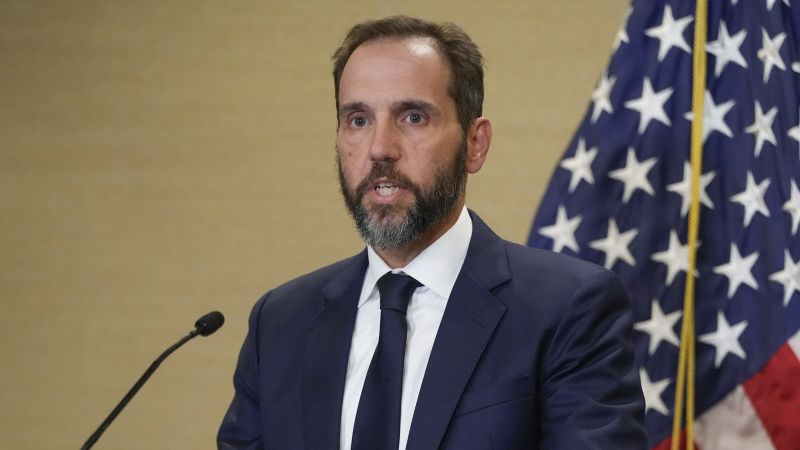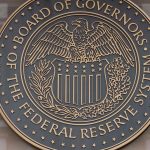Prosecutors from special counsel Jack Smith’s office urged the judge overseeing the federal election interference case against Donald Trump to reject the former president’s attempts to dismiss the charges against him on constitutional grounds, saying his arguments rely on “distortions and misrepresentations.”
While Trump has repeatedly attacked the case against him on the campaign trail and in court filings, the special counsel’s court filing on Monday marks the first time prosecutors have defended their historic criminal prosecution against the former president in court.
“The defendant attempts to rewrite the indictment, claiming that it charges him with wholly innocuous, perhaps even admirable conduct—sharing his opinions about election fraud and seeking election integrity—when in fact it clearly describes the defendant’s fraudulent use of knowingly false statements as weapons in furtherance of his criminal plans,” prosecutors wrote in the filing.
“But the defendant stands alone in American history for his alleged crimes,” they wrote. “No other president has engaged in conspiracy and obstruction to overturn valid election results and illegitimately retain power.”
District Judge Tanya Chutkan, who is overseeing the case in Washington, DC, will have the ultimate say on whether the case will proceed. She has not yet made any determination on Trump’s many motions to dismiss the indictment he faces.
Trump is accused of illegally plotting to stay in office after losing the 2020 election. He has pleaded not guilty to the charges against him.
In late October, Trump’s attorneys filed several motions to dismiss the case, arguing the charges violated his First Amendment rights and suggested the case against the former president was part of a “selective and vindictive prosecution” against him.
Trump’s attorneys have also said that, as president, Trump’s actions were rightly adjudicated by Congress, where he was acquitted in the Senate following his impeachment in the House in the wake of the January 6, 2021, US Capitol attack. Beyond Congress, defense attorneys argue, Trump’s actions as president should be immune from criminal prosecution.
“Rather than challenging the indictment on its merits, the defendant’s motions attack the indictment by mischaracterizing its allegations, raising inapposite hypotheticals, and advancing arguments that are long on rhetoric but short on law,” prosecutors wrote Monday. “Stripped of those distractions, the defendant’s statutory and constitutional claims are entirely meritless.”
Impeachment is designed to limit the punishments Congress can impose to ensure “that a former federal officer does not escape accountability for criminal wrongdoing,” prosecutors said. Instead, the impeachment clause of the US Constitution “specifies limitations on the consequences that the Senate may impose after a conviction” and the outcome of such a trial doesn’t affect the potential for future criminal prosecutions.
Prosecutors also ridiculed the notion that Trump’s alleged actions come protected by freedom of speech, writing that his conduct in the wake of the election falls “well outside the protections afforded by the First Amendment.”
“The First Amendment does not protect fraudulent speech or speech otherwise integral to criminal conduct, particularly crimes that attack the integrity and proper function of government processes,” they wrote. “The defendant’s arguments are based on an inaccurate and self-serving characterization of the charges.”
In a separate filing Monday, special counsel prosecutors lambasted the former president’s request to strike language about the January 6 riot at the US Capitol from the election interference indictment, arguing he is ultimately responsible for the violence that day.
“The Court should recognize the defendant’s motion for what it is: a meritless effort to evade the indictment’s clear allegations that the defendant is responsible for the events at the Capitol on January 6,” prosecutors wrote.
Trump’s attorneys have asked the judge to take what they believe is “prejudicial and inflammatory” language about the violent insurrection, out of the indictment because the former president is not charged with causing the riot.
While Trump himself did not participate in the events at the Capitol, prosecutors argued, the violence was “the culmination of the defendant’s criminal conspiracies to overturn the legitimate results of the presidential election.”
“Contrary to the defendant’s claims, then, the indictment’s allegations related to the actions at the Capitol are relevant and probative evidence of the defendant’s conduct and intent,” they wrote.
After losing the 2020 presidential election, prosecutors wrote, Trump spent months cultivating “widespread anger, resentment, and mistrust of the election results by spreading knowingly false claims of election fraud.”
On January 6, Trump “directed a large and angry crowd—one that he had summoned to Washington, D.C., and fueled with knowingly false claims of election fraud—to the Capitol to obstruct the congressional certification proceeding,” they said.
When his supporters did descend on the Capitol, prosecutors wrote, “the defendant did not try to stop them; instead, he encouraged them and attempted to leverage their actions by further obstructing the certification.”
Read the full article here



